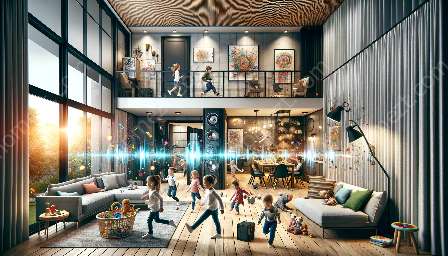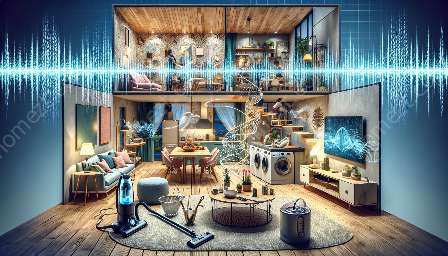Living in a peaceful and serene environment is essential for maintaining a healthy and balanced lifestyle. However, noise disturbance from neighbors can often disrupt this tranquility, leading to a significant impact on one's wellbeing. This article explores the causes of noise pollution in homes, its harmful effects, and effective noise control measures to mitigate the impact of such disturbances.
Causes of Noise Pollution in Homes
Noise pollution in homes can result from various sources, including:
- 1. Domestic Activities: Everyday activities such as washing machines, dishwashers, and loud music can contribute to noise pollution within homes.
- 2. External Sources: Noise from traffic, construction sites, and industrial areas can infiltrate homes, causing disturbance to occupants.
- 3. Pet-Related Noise: Barking dogs, chirping birds, and other pet-related sounds can also lead to noise pollution within residential areas.
- 4. Neighbor Noise: Activities of neighboring households, such as loud conversations, partying, or home renovations, can significantly contribute to noise disturbance.
Noise Disturbance from Neighbors
One of the most common sources of noise pollution in residential areas is noise disturbance from neighbors. This can be caused by various factors such as:
- 1. Loud Parties: Social gatherings and parties in neighboring homes often result in excessive noise, disrupting the peace of surrounding households.
- 2. Renovations and DIY Projects: Home improvement projects, drilling, hammering, and construction activities by neighbors can generate significant noise disturbance for nearby residents.
- 3. Domestic Disputes: Verbal altercations, shouting, and arguments between neighbors can cause noise disturbance and create an uncomfortable living environment.
- 4. Inconsiderate Behavior: Some neighbors may exhibit inconsiderate behavior by playing loud music, operating power tools, or engaging in other noisy activities at unsocial hours, leading to disturbances.
Noise Control in Homes
Effective noise control in homes is crucial for maintaining a peaceful living environment and mitigating the impact of noise pollution. Some methods for controlling noise in residential settings include:
- 1. Soundproofing: Installing soundproofing materials such as acoustic panels, double-glazed windows, and door seals can help reduce the transmission of external noise into homes.
- 2. Communication: Open and respectful communication with neighbors can help address noise disturbances, leading to cooperative solutions that benefit all parties.
- 3. Setting Boundaries: Establishing mutually agreed-upon boundaries for noise levels and quiet hours can help reduce disturbances and promote harmonious relationships with neighbors.
- 4. Utilizing White Noise: Using white noise machines or fans can help mask external noises and create a more peaceful indoor environment.
- 5. Legal Recourse: In severe cases of noise disturbance, residents can seek legal recourse by filing noise complaints with local authorities or homeowners' associations.
By understanding the causes of noise pollution in homes, the impact of noise disturbance from neighbors, and implementing effective noise control measures, individuals can work towards creating a more peaceful and harmonious living environment.



























